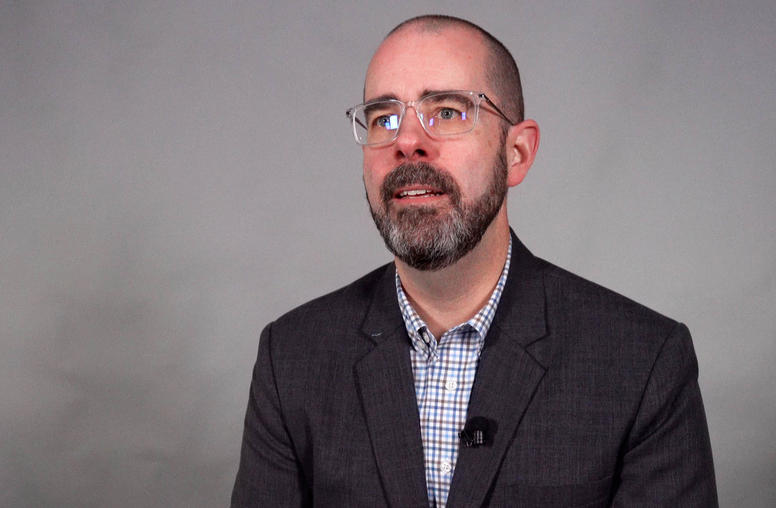Looking Ahead at the Muslim World After 9/11
A day-long conference on the challenges facing the United States in the Muslim world five years after 9/11
In a unique, multidisciplinary event, experts on the Muslim world from each of USIP’s program areas will examine the "big picture" of regional and international trends, as well as bilateral and intranational challenges and opportunities confronting the United States in the years ahead. The purpose of this all-day conference is to look "beyond 9/11" by connecting the dots between the complex and changing dynamics of numerous, disparate conflicts as they emerge, develop, and shape attitudes across the Muslim world.
The program will explore ideological extremism/terrorism, the potential for reform and democratization in the Muslim world, and the issue of how best to "bridge the gaps" with the Muslim world. A question-and-answer session will follow each panel presentation.
This event is open to the public; please see below for RSVP information if you are interested in attending. You may attend all or any of the sessions listed below.
Media Inquiries
Please contact Ian Larsen in the Office of Public Affairs and Communications at 202.429.3870.
Archived Audio
To listen to audio, please click on the links provided below. You also can right click on the links and choose "Save Target As" or "Download Linked File." This will save the file to your computer and then allow you to play it in your media player directly. More Audio Help.
- Welcome, Program Introduction, and Panel I
1:33:05 - 16.8MB - Panel II
1:03:27 - 11.4MB - Panel III
1:00:34 - 10.9MB - Panel IV and Concluding Remarks
1:10:58 - 12.7MB
| 9:35-9:45 | Welcome Richard Solomon, President, U.S. Institute of Peace |
| 9:45-10:00 | Program Introduction Abdeslam Maghraoui, Director, Muslim World Initiative |
| 10:00-11:00 | Panel I: Countering Extremism and Terrorism Moderator: Theodore Feifer Deputy Director, Professional Training Program |
| Rethinking the War on Terrorism Paul Stares, Vice President Center for Conflict Analysis and Prevention |
|
| Religious Education and Militancy in Pakistan: Identifying the Myths, Facts and Unknowns C. Christine Fair, Senior Research Associate Center for Conflict Analysis and Prevention |
|
| 11:00-12:15 | Panel II: Reforming the Muslim World Moderator: Abdeslam Maghraoui Director, Muslim World Initiative |
| Islamists: Between Radicalism and Moderation Judy Barsalou, Vice President Grants and Fellowship Program |
|
| Engaging with Moderate Islamists: Why and How? Mona Yacoubian, Special Advisor Muslim World Initiative |
|
| Building Effective Democratic Opposition in the Arab World Daniel Brumberg, Special Advisor Muslim World Initiative |
|
| 12:15-1:15 | Lunch Break |
| 1:15-2:30 | Panel III: Bridging the Divide Moderator: John Crist Acting Associate Vice President of the Jennings Randolph Fellowship Program (to be confirmed) |
| Religion and Peacemaking David Smock, Vice President Center for Mediation and Conflict Resolution Associate Vice President, Religion and Peacemaking Program |
|
| Can Muslim-Americans Bridge the U.S.-Muslim World Divide? Qamar-ul Huda, Senior Program Officer Religion and Peacemaking Program |
|
| Teaching Peace and Tolerance through Education Jeff Helsing, Deputy Director Education Program |
|
| Lessons Learned from the Philippines Eugene Martin, Executive Director Philippine Facilitation Project |
|
| 2:30-3:45 | Panel IV: Pivotal Conflicts Moderator: Daniel Serwer Vice President, Center for Post-Conflict Peace and Stability Operations, Centers of Innovation |
| Prospects for Peace and the Threat of Violence in Sudan Dorina Bekoe, Senior Research Associate Center for Conflict Analysis and Prevention |
|
| Iran: Regional Ambitions for a Domestic Agenda? Daniel Brumberg, Special Advisor Muslim World Initiative |
|
| What Can Be Done to Save Iraq? Patricia Karam, Senior Program Officer Grants & Fellowships Program |
|
| Emerging Uncertainties in Afghanistan Beth Cole DeGrasse, Senior Program Officer Center for Post-Conflict Peace and Stability Operations |
|
| Beyond Lebanon: Vision for a Comprehensive Peace in the Middle East Scott Lasensky, Senior Research Associate Center for Conflict Analysis and Prevention |
|
| 3:45-4:00 | Concluding Remarks Abdeslam Maghraoui, Director, Muslim World Initiative |




